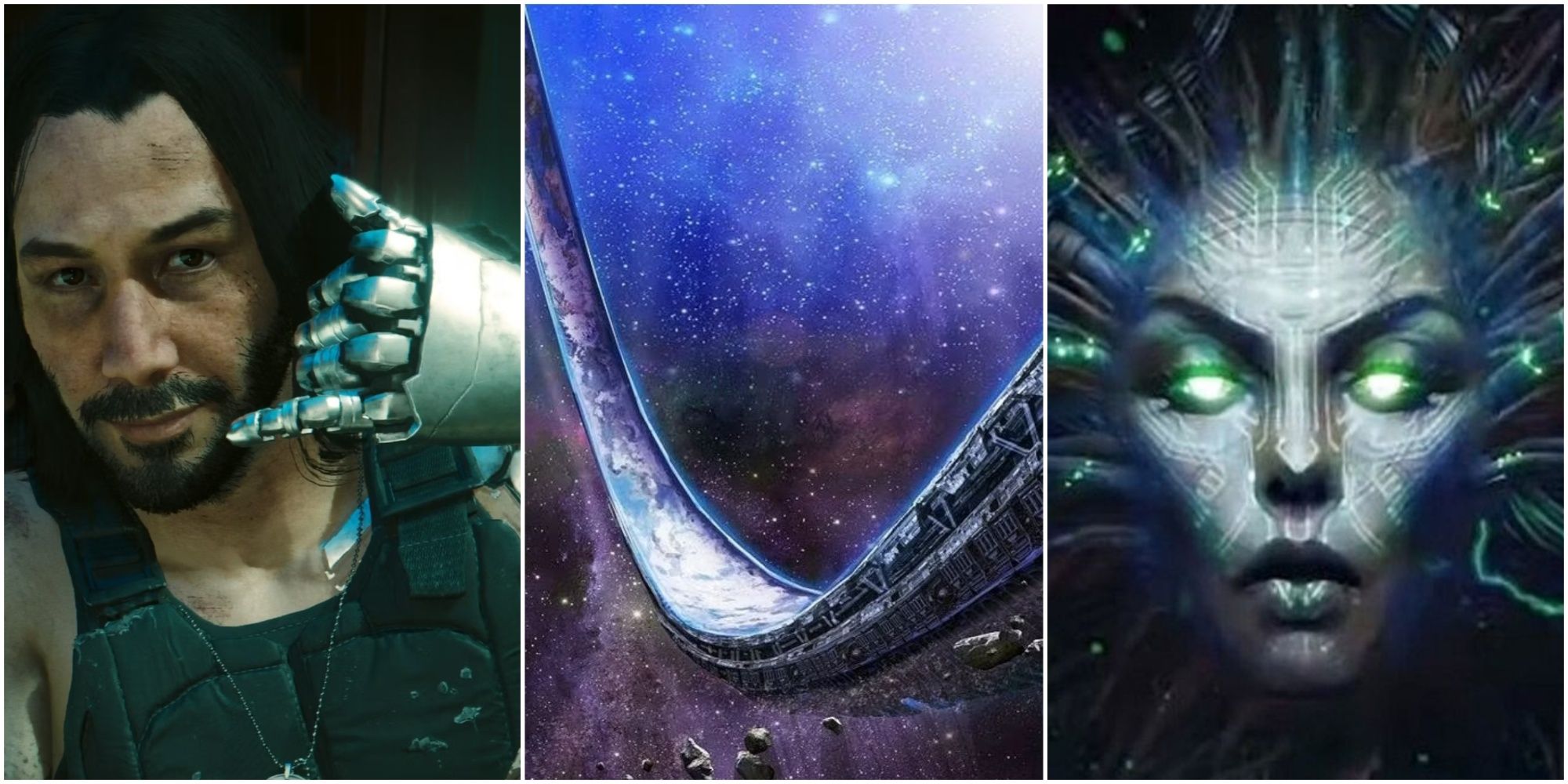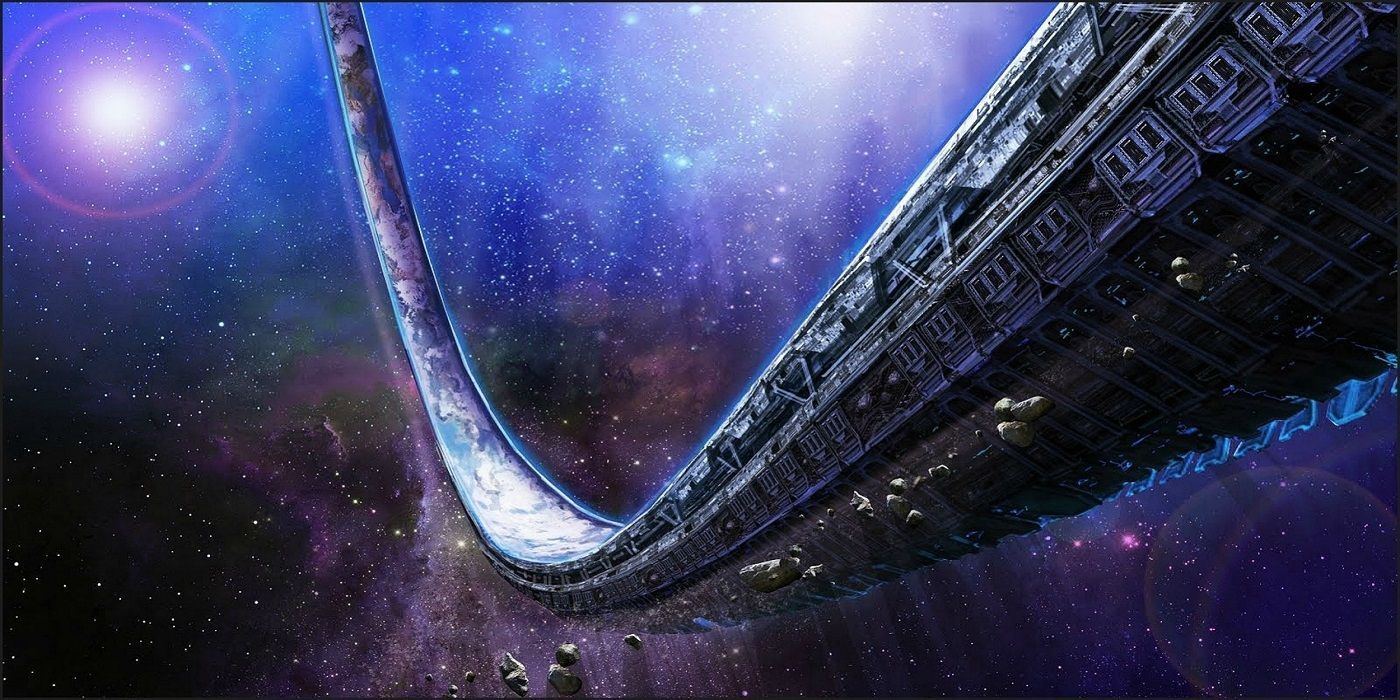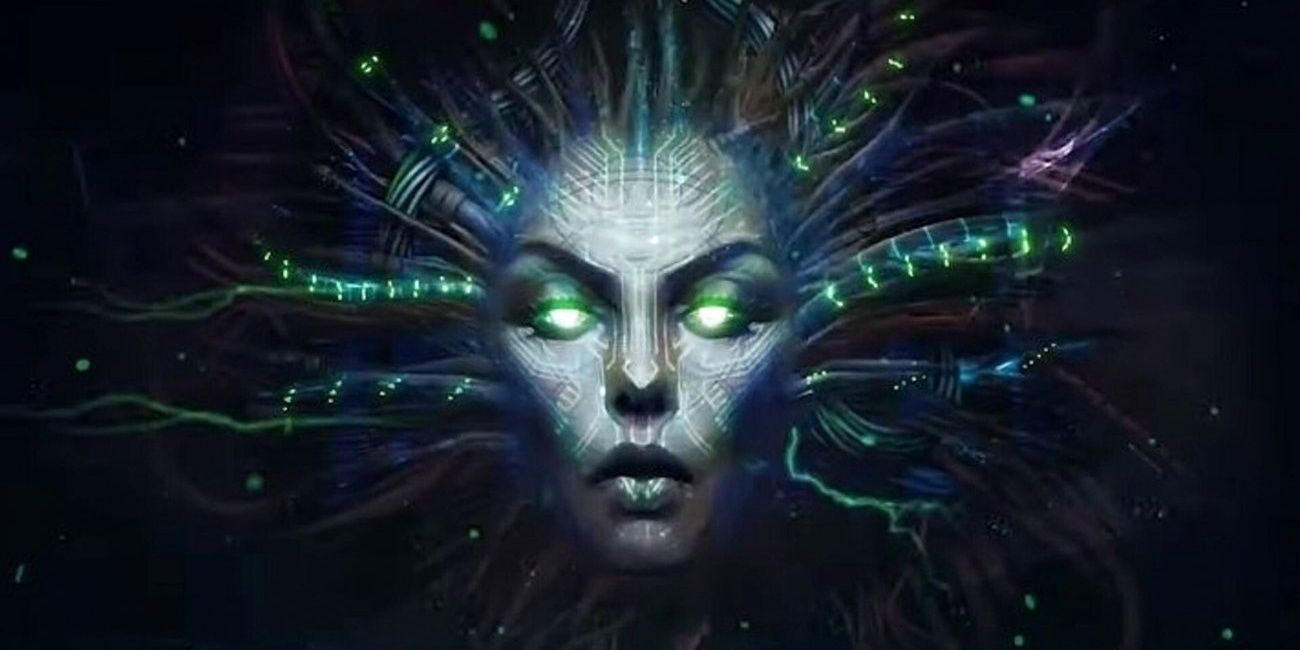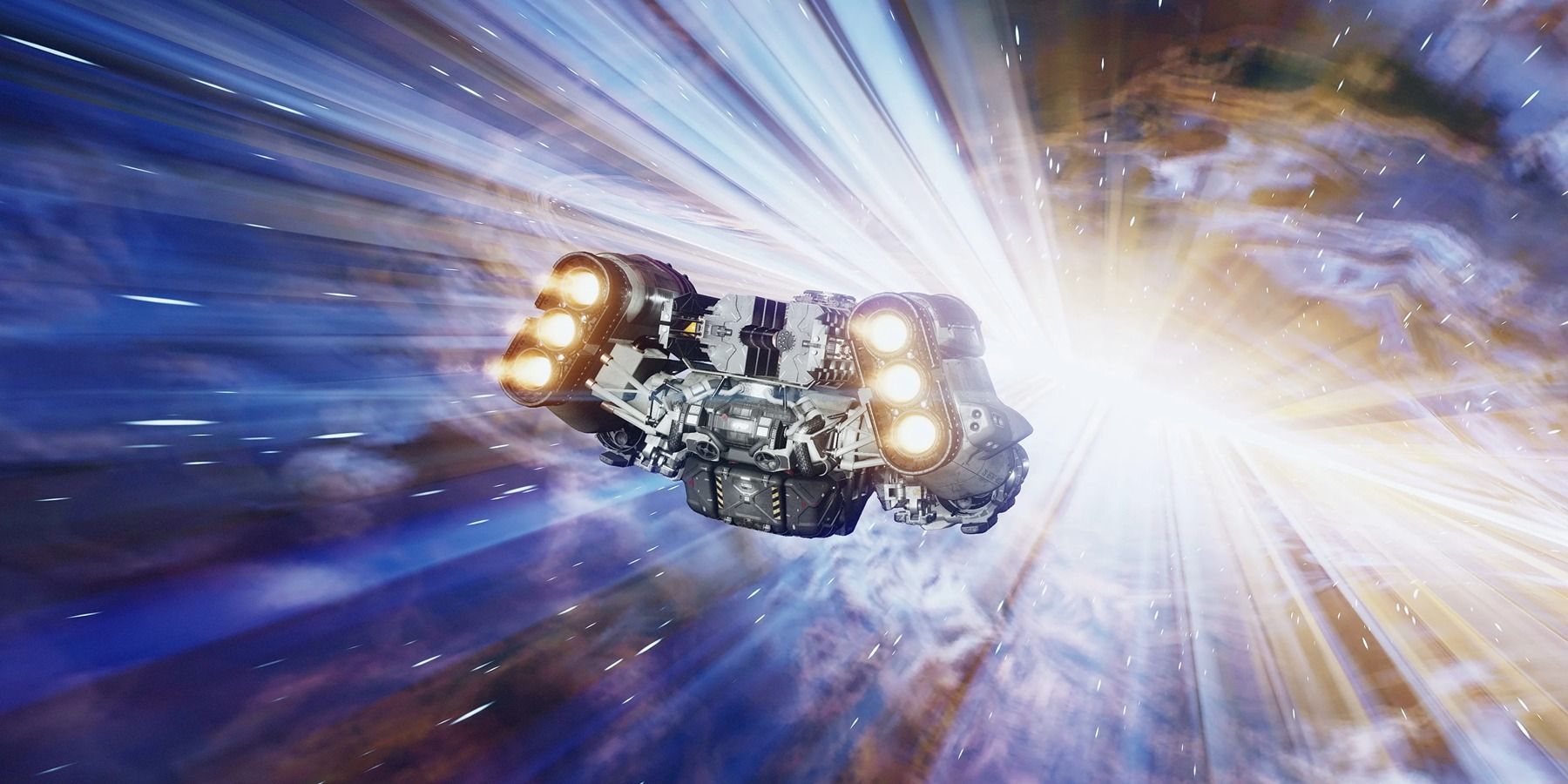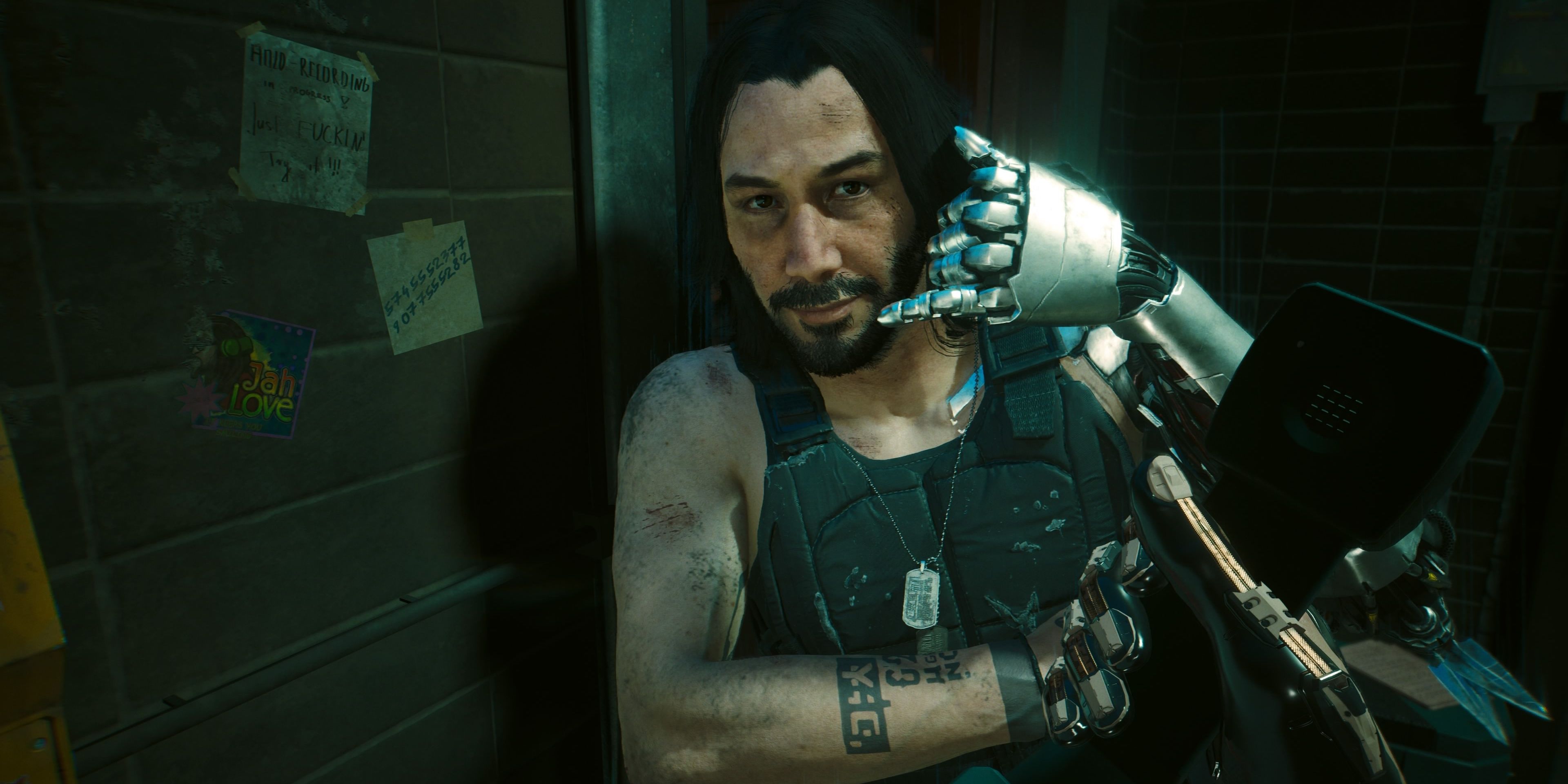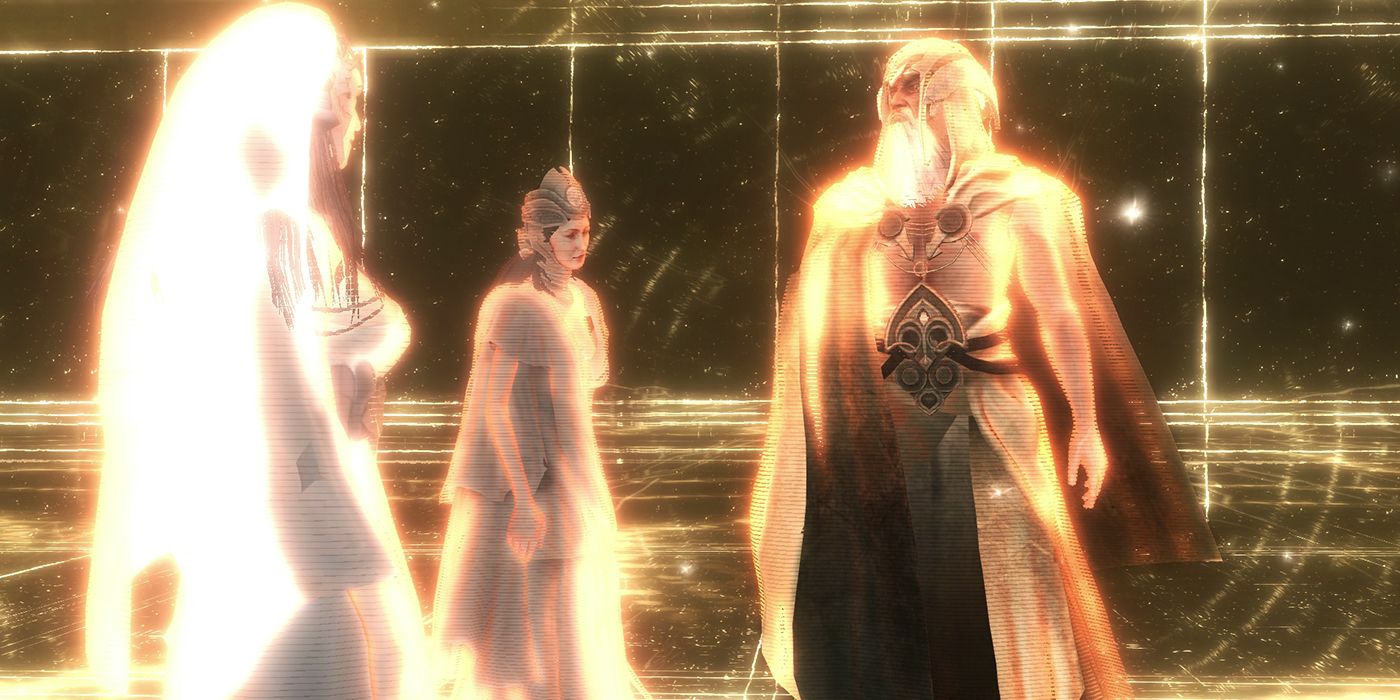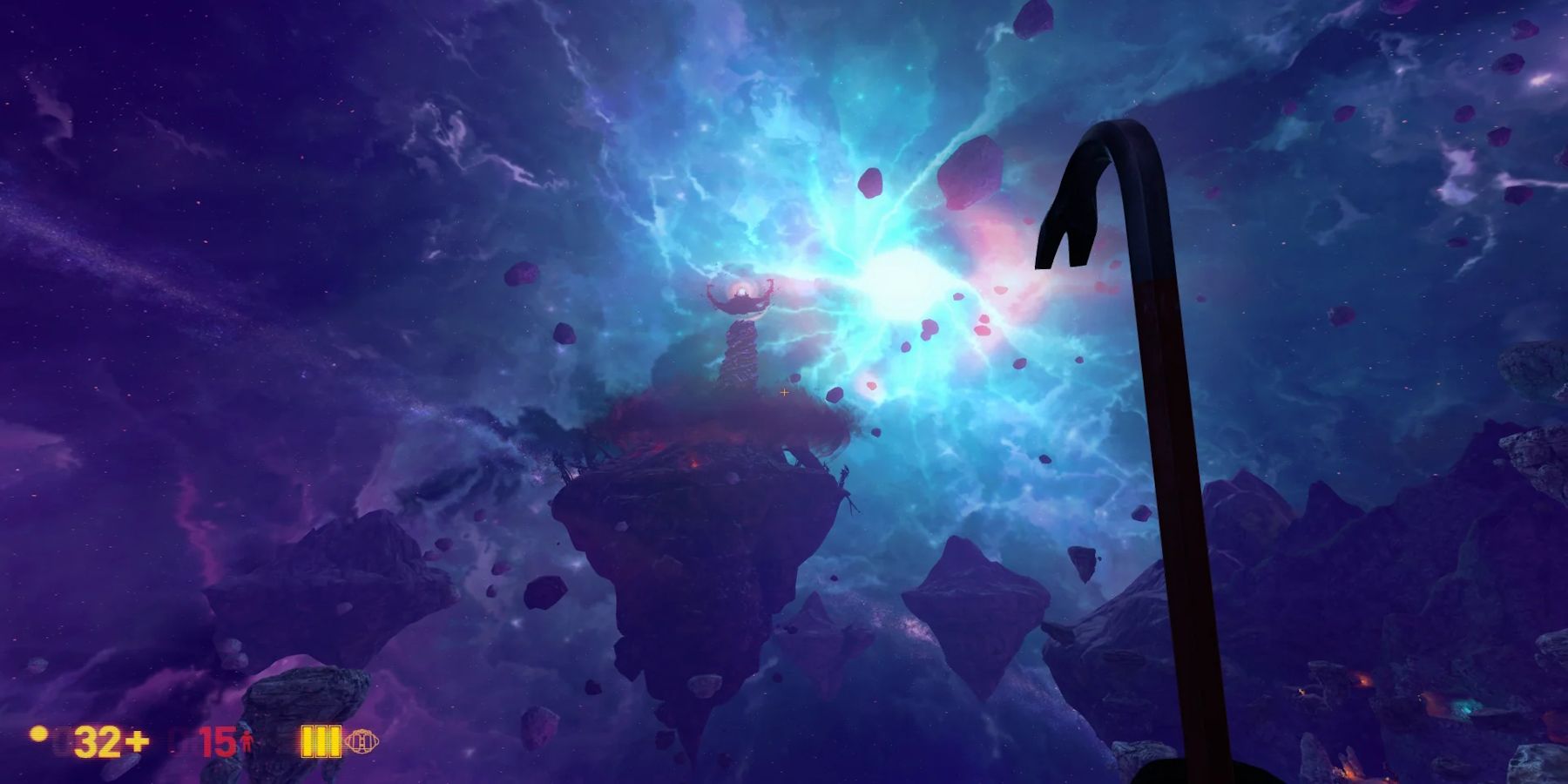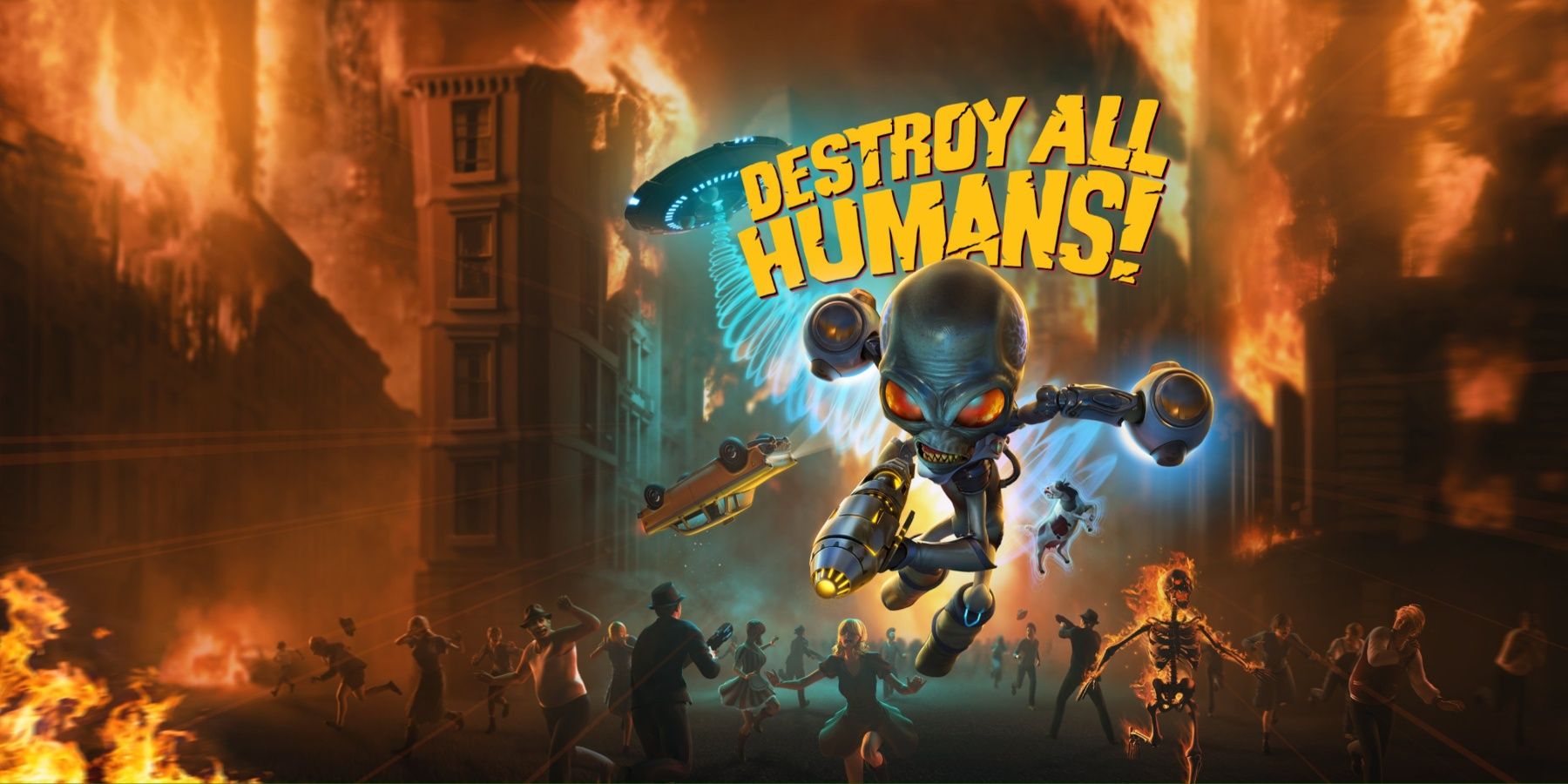The genre of science fiction is among the most popular in the gaming industry. Some of the most popular and important games in the history of the medium have been sci-fi, and are known for effectively using the tropes associated with the genre to tell a story, build up the world, or just inform the gameplay design.
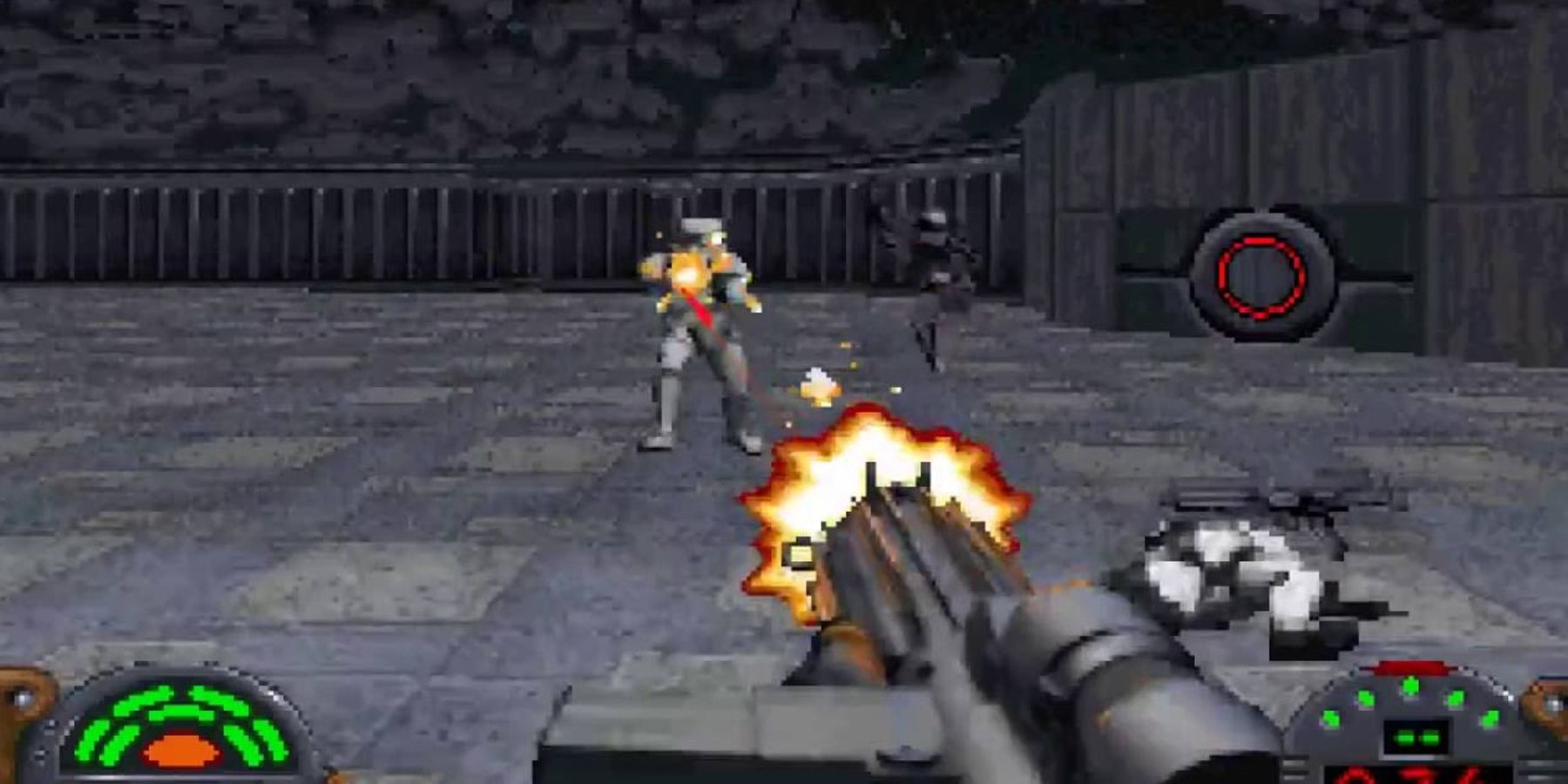
7 Forgotten PS1 FPS Games No One Remembers
These FPS titles on the original PlayStation were overlooked by many, but they still had a hand in shaping the genre into what it is today.
There are so many sci-fi tropes, however, with many of them coming from either classic literature or cinema. As a result, they have become utterly ubiquitous across all forms of media in which sci-fi is the subject. Gaming is a relatively young medium and, as such, has borrowed from those sources rather heavily. Here are just a few of these classic sci-fi tropes that have made an appearance in gaming.
Note that the games cited as examples don't always necessarily fall into the sci-fi category, but might still feature sci-fi tropes.
7 Deep Space Megastructures
Colossal Machines Hidden Within The Dark Reaches Of Unknown Space
- Notable Examples: Halo, Mass Effect & Dyson Sphere Program
What deep space megastructure refers to is an impossibly gargantuan machine that exists somewhere in the vacuum of space, presumably for an important purpose. Games like Halo are some of the most notable modern examples due to heavily featuring massive ring worlds as one of their main elements.
The concept of a ringworld itself comes from the 1971 novel Ringworld by Larry Niven, while the concept of a Dyson sphere, or a sphere-like machine that encapsulates a star or planet, was first explored in the 1937 novel Star Maker by Olaf Stapledon. Dyson spheres can be seen in games like Mass Effect and, of course, Dyson Sphere Program, among others.
6 Artificial Intelligence
All-Knowing Entities That Tread The Line Between Benevolence & Malevolence
- Notable Examples: System Shock, Horizon & Portal.
Classic examples of AI in film would, of course, be Skynet from the Terminator films, and Hal 9000 from 2001: A Space Odyssey, but the concept actually goes back to the late 19th century as far as written literature is concerned. These days, the idea of sentient A.I. has appeared in quite a number of games. A great example is in System Shock, which features a rebellious A.I. named SHODAN, who hates humanity and wishes to escape her man-made shackles and destroy her creators. GLaDOS from the Portal Series is also a good example of an A.I. villain.
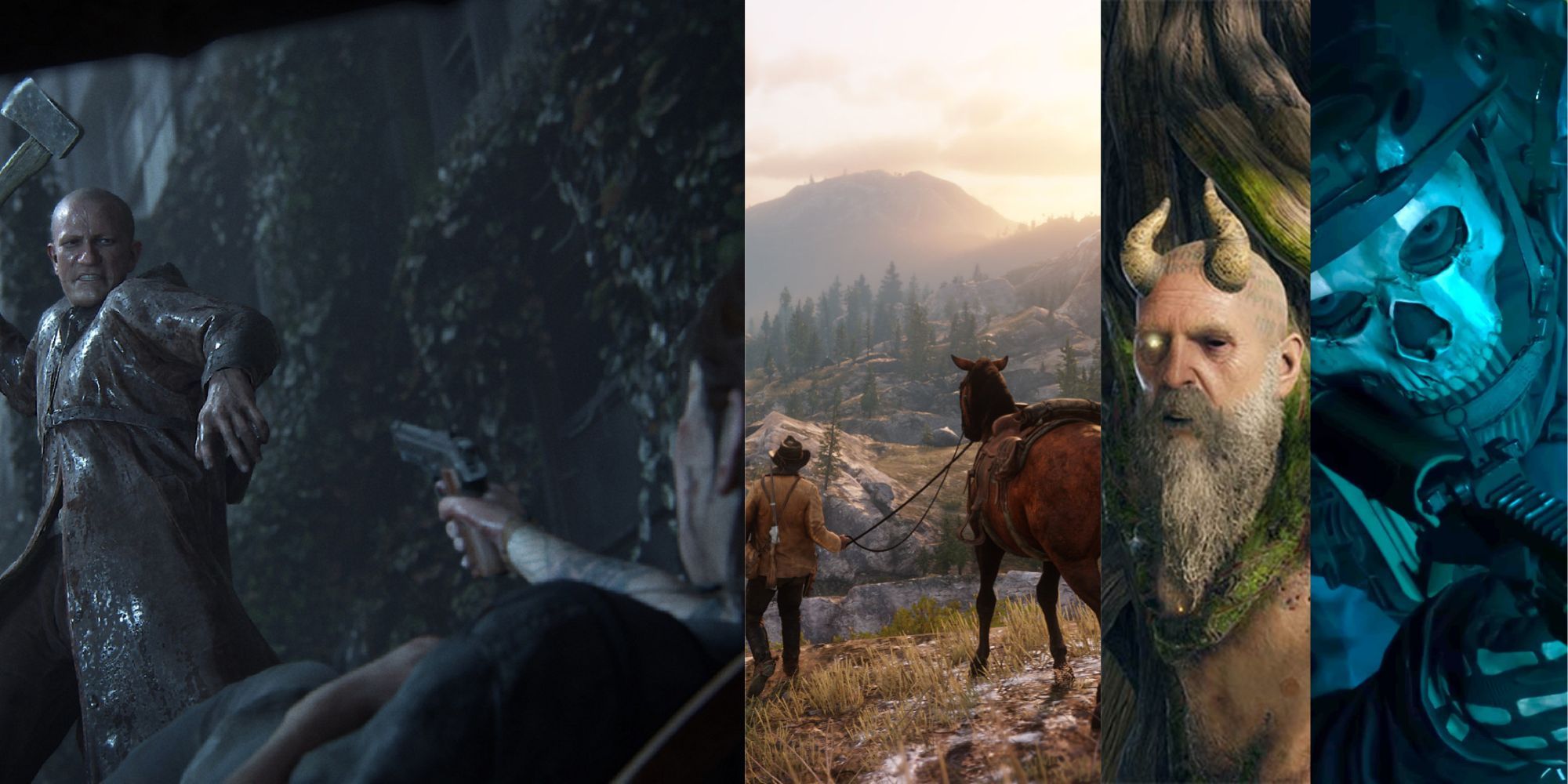
Video Game Characters With The Best A.I.
Making characters feel believable often comes down to the way their AI is programmed. Here are the characters who serve as the best examples.
Good AI has also been a thing in modern gaming as well, however. GAIA is a fundamentally altruistic AI character in the Horizon series, while Halo has several friendly A.I. characters like Cortana (who would transcend her game roots and become a real Windows Siri-like virtual assistant).
5 Faster-Than-Light Travel
Getting From Point A To Point B With A Little Cheating
- Notable Examples: Starfield, Eve Online & Dead Space
While the concept has roots in real scientific theory, it has been featured in countless pieces of media under various names and presentations for almost a century. From Star Wars (hyperspace) to the original Dune novels, faster-than-light travel is a popular method of traversing great distances because it's basically a catch-all cheat to get around the limitations of light speed itself.
This could be something like a wormhole or a portal, which folds space in on itself, depositing characters exactly where they need to go instantly (or nearly so) instead of forcing them to travel for thousands of years in real space. Dead Space is one such game series that features FTL travel via the Shockpoint engine, as does Bethesda's recent Starfield, which showcases grav-jumping as a method of traversal across the galaxy.
4 Body Augmentation
Using Prosthetic Modification To Tackle Notions Of Humanity
- Notable Examples: Cyberpunk 2077 &Deus Ex
A staple of the cyberpunk genre in particular, body modification is when the characters of a given piece of media use technology to augment parts of their bodies. This means mechanical limbs, brain chips, bionic eyes, and more. The 1984 novel Neuromancer, dealt with the theme of body modification, and it has been heavily influential in this respect on other media, such as A Ghost in the Shell, Akira, and even RoboCop.

Cyberpunk 2077: Best Character Mods on Nexus
Players can find an abundance of Cyberpunk 2077 mods on Nexus, which add new character changes to the game.
Cyberpunk 2077 is a fantastic modern example of the concept of body modification in gaming, as many if not most characters in the game world have some sort of technological augmentation in or on their body. Fallout also toys with the concept of cybernetic enhancements, though not as heavily as more pure-form sci-fi games like the Deus Ex series.
3 Bygone Precursors
Stories Of Mysterious Ancient Beings Told Through Their Derelict Creations
- Notable Examples: Assassin's Creed, Jak & Daxter &The Elder Scrolls
The trope of a bygone race of technologically superior beings leaving behind mere hints of their existence is fairly ubiquitous in the sci-fi genre. It's been seen in famous literary works by Isaac Asimov and even Carl Sagan, as well as films like 2001: A Space Odyssey in some form.
In the gaming landscape, several notable series have relied on the trope in some capacity, including Halo with its Forerunners (which originally were ancient humans until it was retconned), Assassin's Creed and its Isu people, and even the Elder Scrolls franchise, which featured the Dwemer as its lost precursor Elf race. The trope itself is not exclusive to sci-fi and has seen a surprising amount of use in fantasy and other genres for decades.
2 Extra / Alternate Dimensions
Diverging Realities With Vastly Different Landscapes, Creatures & Physics
- Notable Examples: Minecraft, Half-Life & Alan Wake
Dimensional travel and alternate universes have gotten much more play in popular culture in recent years thanks to the Marvel cinematic universe. This trope, however, has been around for quite some time, in part because it has at least some grounding in real scientific hypotheses, and has been explored in fiction by authors like H.P. Lovecraft and Stephen King.
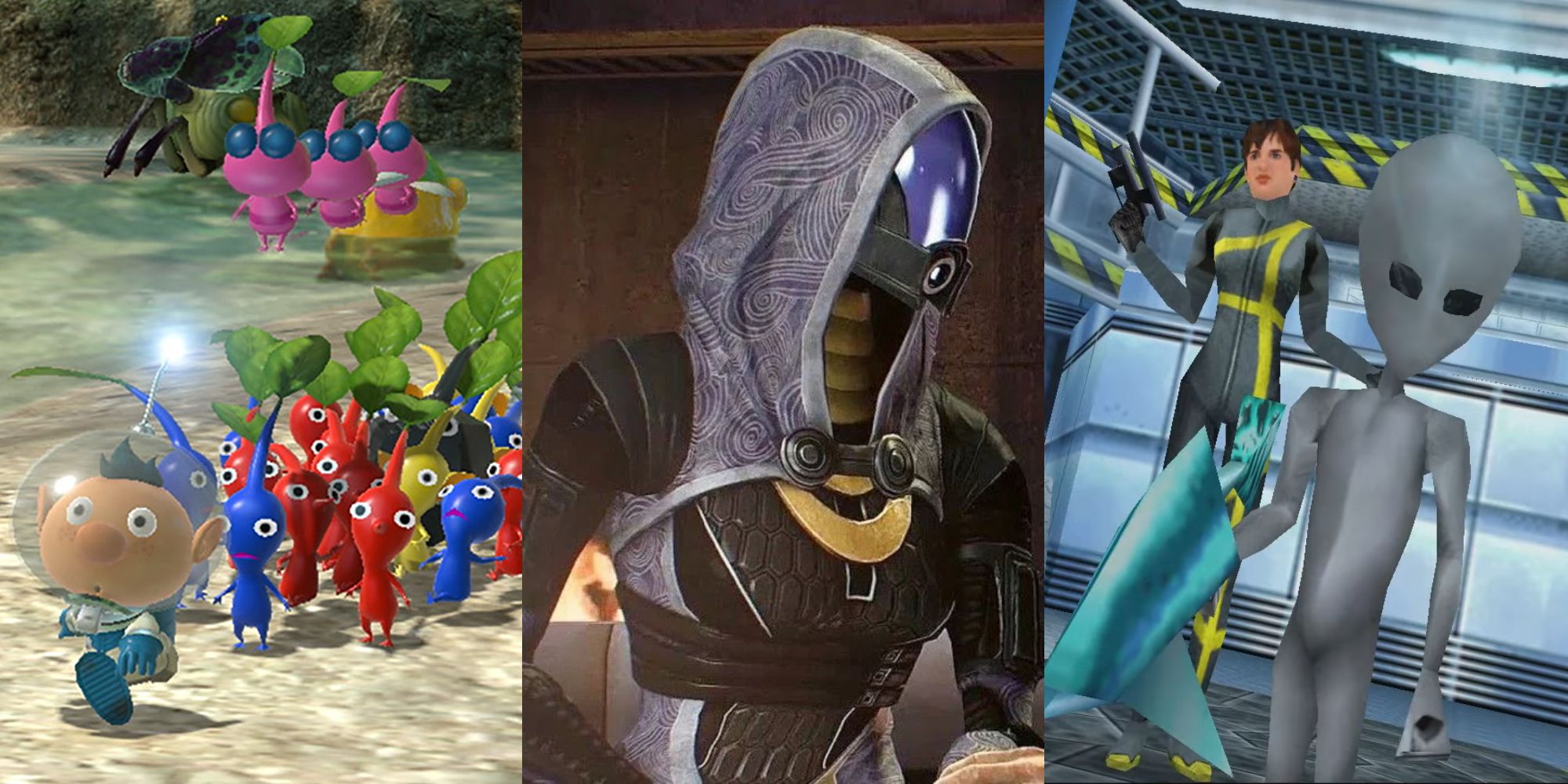
8 Games That Introduce Peaceful Aliens
Aliens aren't always the bad guys. In these games, they're allies, friends, and maybe more.
A classic example of a game that features extra or alternate dimensions is the Half-Life series, which features a dimensional border world named Xen, as well as the interdimensional empire known as the Combine. Other games that utilize this idea include Doom, Alan Wake, and even Minecraft.
1 Extra Terrestrial Life
Answering the Question of, "Are We Alone In The Universe?"
- Notable Examples: Fallout, Metroid & Destroy All Humans
The idea of extraterrestrials has been explored in countless films and novels for over a century, and much of that work has permeated into video games. Even disregarding adaptations of popular franchises like Alien or Star Wars (of which there are many), games have been featuring aliens since the dawn of the medium, with such examples as Galaxian and Galaga. More modern games that feature aliens to varying extents include Mass Effect, Fallout (mostly as an Easter Egg), Metroid, Halo, Destroy All Humans, and many more.
The existence of aliens in artistic mediums speaks to the ever-burning question of whether humanity is alone in the universe. While people have long looked to the stars and hoped that there may be life, gaming, like every other form of art, has suggested answers to this question that range from the wondrous beyond imagination to the utterly nightmarish.
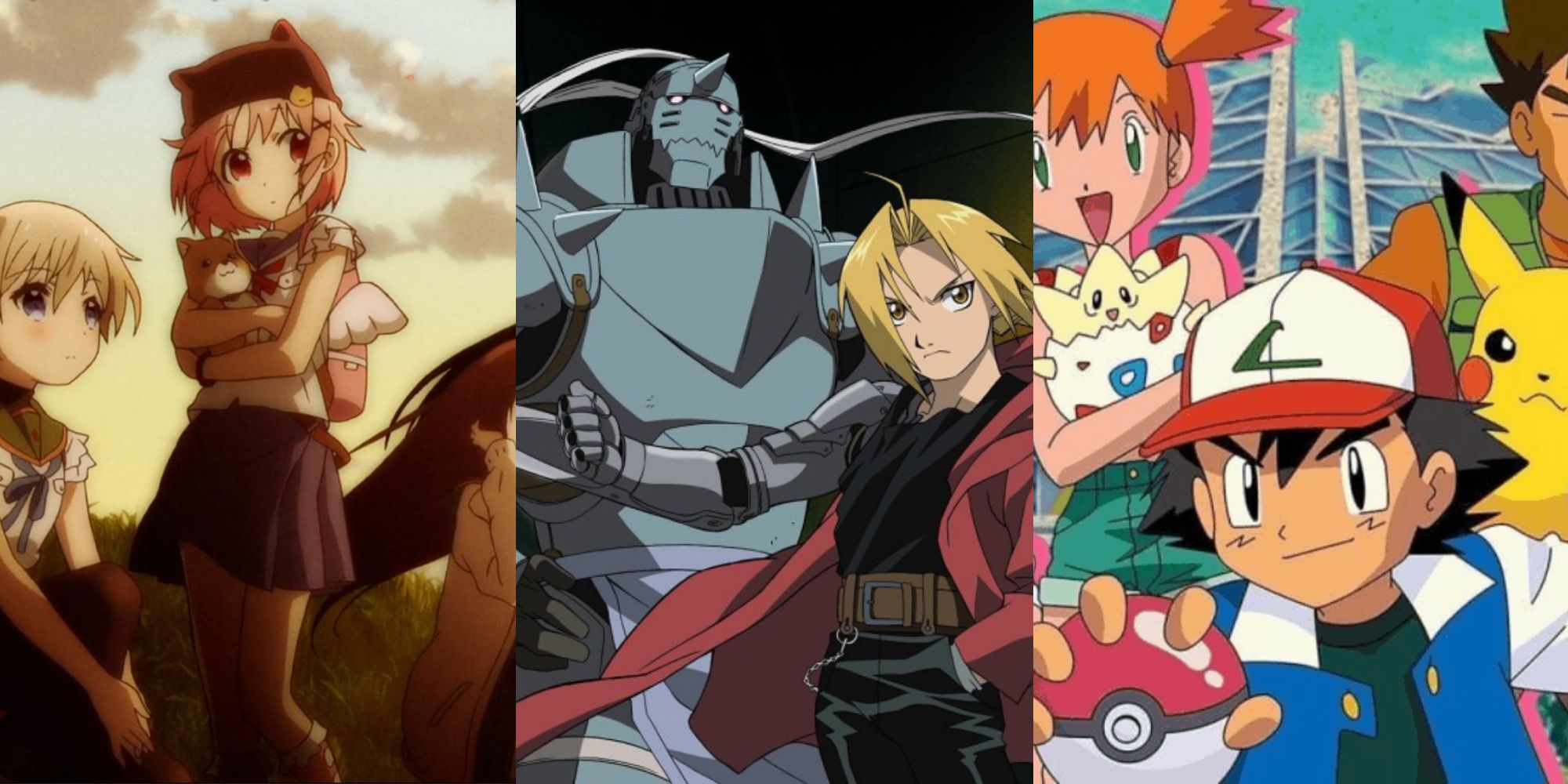
10 Most Overused Anime Tropes
Tropes are commonly used in all types of fiction, but which ones are overused in anime?

